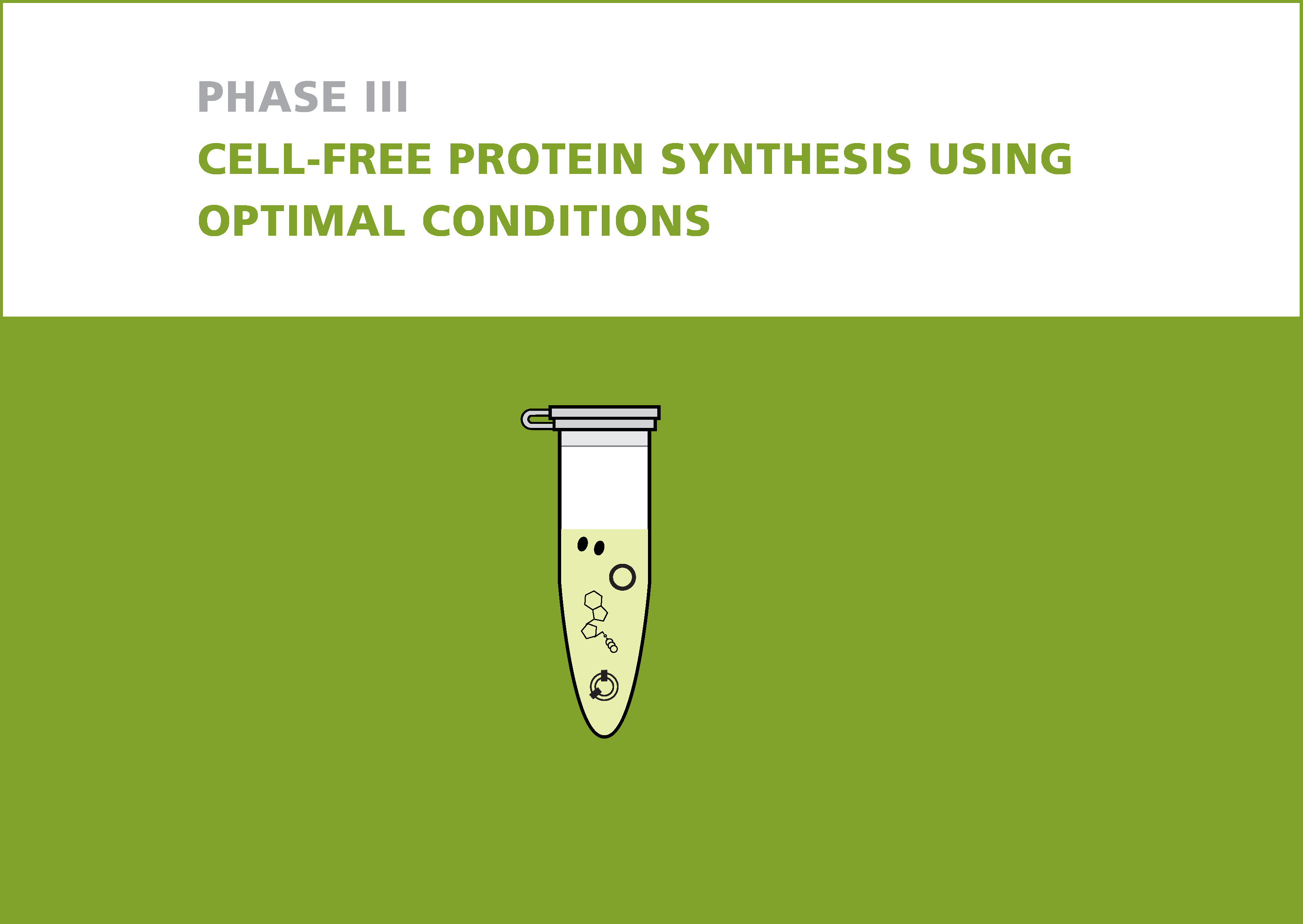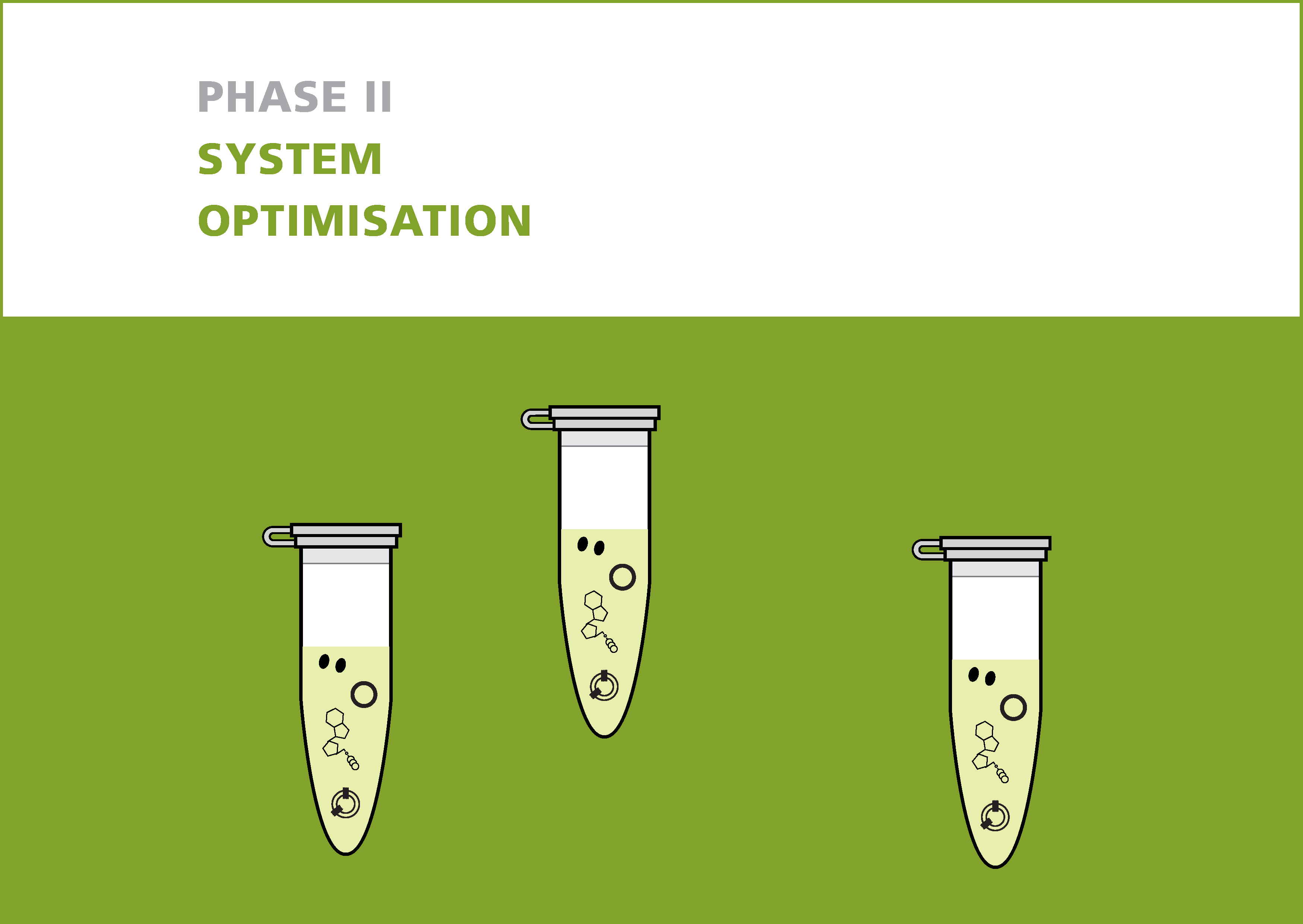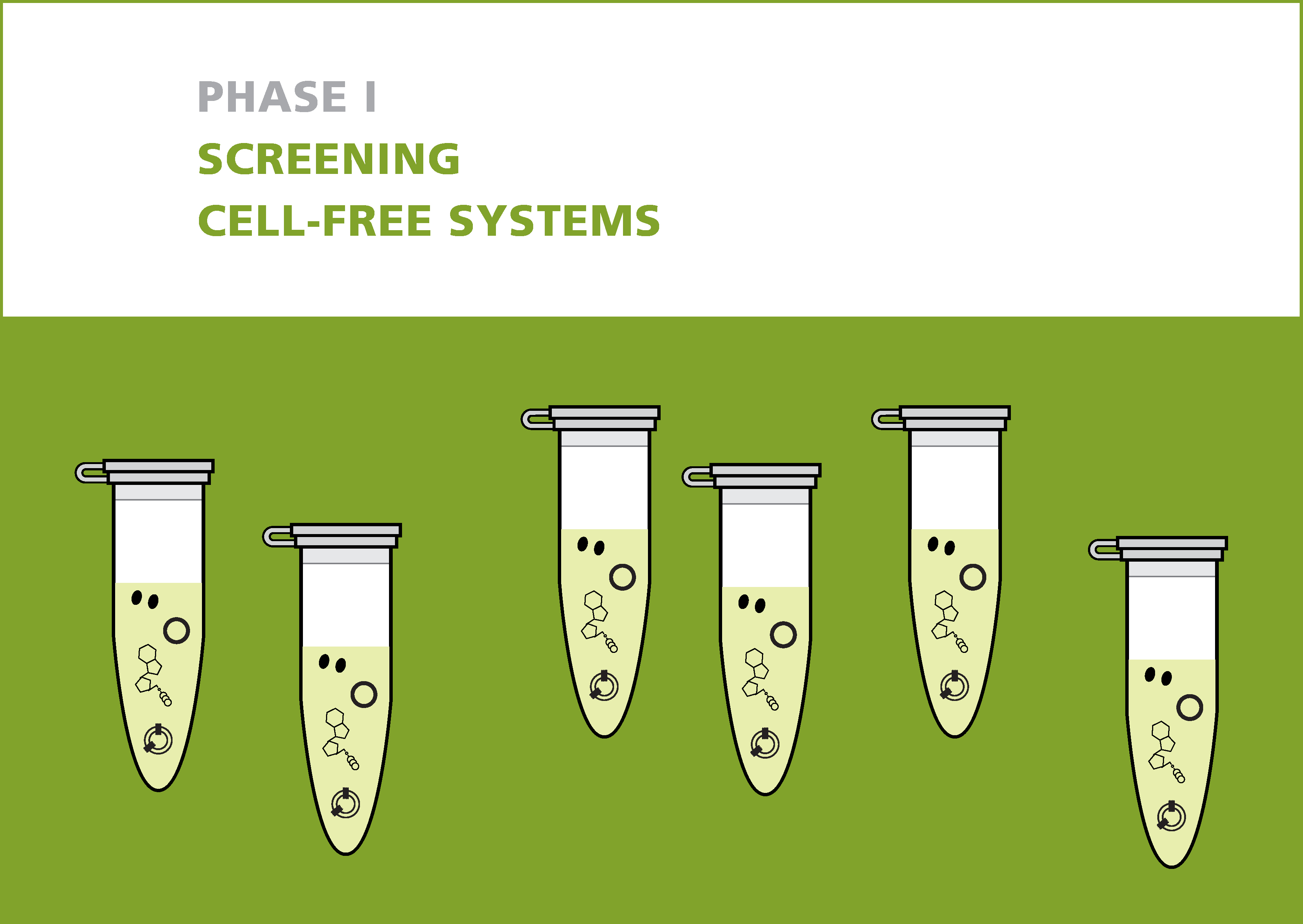The evaluation of protein synthesis is an interesting R&D service for industrial research projects. Cell-free protein synthesis, often designated as in vitro translation, is a fast and efficient technique that achieves its goal with significantly less reaction steps than in vivo methods. With this method, proteins can be synthesized directly in their natural environment using lysates from cultured cell lines. Various cell-free systems based on lysates from pro- and eukaryotic resources allow the production of a wide range of differently structured and modified proteins. In the course of the project, different cell-free systems will be investigated to find the appropriate system for each specific problem. Special requirements such as glycosylation, membrane protein synthesis in native environment, disulfide bridging or signal sequence splitting are addressed.
Evaluation of protein synthesis in cell-free systems - protein expression service
The evaluation can be divided into several phases. During phase I, an initial evaluation of the synthesis of the target protein is performed. In this phase different lysates can be used to establish the optimal system for the expression of a specific target protein (based on cultured insect, CHO or human cell lines, E. coli and wheat germ lysates). Plasmids or mRNA can be used as templates. The testing of already existing templates or the design and generation of optimal templates will be realized for the different systems. The introduction of mutations e.g. for protein engineering is also possible.
A further optimization of the reaction conditions in defined systems will be carried out in phase II to improve the yield and/or activity of the newly synthesized proteins. Purification of the target protein, activity assays (e.g. ELISAs), electrophysiological characterization of membrane proteins (e.g. ion channels) but also cell culture assays (e.g. for activity studies) can be included in the evaluation phase.
In addition to the evaluation of the actual protein synthesis, templates such as mRNA or DNA can be validated and the influence of the sequences, but also the quality of the template on the protein synthesis performance can be investigated. The possibility to individually adjust the synthesis conditions results in a variety of applications (see stage design).
Range of services
- Evaluation of protein synthesis using different cell-free systems (lysates from insect cells, CHO cells, cultured human cells; E. coli and wheat germ lysates) in batch and dialysis mode (CECF)
- Integration of regulatory sequences, signal peptides, IRES sites, purification and fluorescence tags
- Validation of DNA and mRNA templates
- Protein Engineering
- Determination of the synthesis yield using (14C)-protein labelling and TCA precipitation
- Characterization of protein synthesis by gel electrophoresis, autoradiography and quantitative imaging in phosphorimager protein analysis by fluorescence microscopy and Western blotting
- Performance of activity assays directly following cell-free synthesis
- Production of translational lysates and their integration into cell-free systems
- If interested, the cell-free synthesis of proteins can be carried out in a standardised way according to GLP guidelines.
 Fraunhofer Institute for Cell Therapy and Immunology, Branch Bioanalytics and Bioprocesses IZI-BB
Fraunhofer Institute for Cell Therapy and Immunology, Branch Bioanalytics and Bioprocesses IZI-BB


